PROGRAM
Program Overview
The conference general program will run for three days from December 16th to October 18th, 2025.
Proceedings
The proceedings shall be published shortly after the conference in IFAC-PapersOnLine
Plenary lectures
ICFDA 2025 features the following plenary speakers :
- Professor Yongguang Yu (School of Mathematics and Statistics, Beijing Jiaotong University)
- Professor Abdelfatah Charef (Université des Frères Mentouri – Constantine 1)
- Professor Mouffak Benchohra (Dept. of mathematics at Djillali Liabes University, Sidi Bel Abbes)
- Professor Carla Pinto (School of Engineering, Polytechnic of Porto)
- Professor Horst Schulte (Applied Sciences-HTW, Berlin)
More details about the dates and contents of the plenary lectures are provided below.
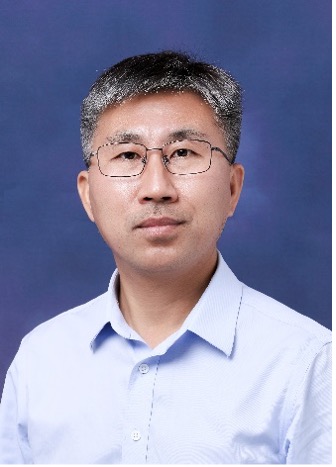
Professor Yongguang Yu
Title : Qualitative analysis and control research of fractional order systems
with stochastic noises
Session : To be scheduled
School of Mathematics and Statistics, Beijing Jiaotong University, China
Bio : Yongguang Yu received the Ph.D. degree at the Institute of Applied Mathematics, Academy of Mathematics and System Sciences, Chinese Academy of Sciences, China, in 2004. Since 2010, he has been a professor with the School of Mathematics and Statistics, Beijing Jiaotong University, China. He is currently mainly engaged in the research of complex networks, neural network computing, and the qualitative theory of fractional differential equations. As the first author, he has published 2 academic monographs, and as the first author or corresponding author, he has published more than 200 academic papers, including more than 160 papers indexed in Web of Science (SCI). His papers have been cited more than 5,000 times on Google Scholar. From 2014 to 2024, he was consecutively selected into the Elsevier ‘Computer Science’ field of China’s Highly Cited Scholars list. He has been recognized as one of the top 2% of scientists globally by Stanford University and listed among the “Top 100,000 Scientists in the World” in the Global Scholars Database.
Abstract : Fractional order systems are dynamic systems described by non-integer order calculus equations, which compensate for the shortcomings of poor agreement between integer-order model theory and experimental results. Therefore, researchers have widely applied fractional calculus in various fields, including anomalous diffusion problems, constitutive relationships of viscoelastic materials, automatic control, mathematical biology, and seismic singularity analysis. Furthermore, based on various advanced control strategies and criteria for system controllability, the dynamic behavior of fractional systems has been thoroughly studied. However, in many practical problems, stochastic noises in complex environments are inevitable, which can more or less affect the dynamic characteristics of complex systems. To better understand and handle the behavior of complex systems and explore the design of strategies to deal with random disturbances, this paper applies fractional calculus theory, stochastic stability theory, and stochastic optimal control theory to establish the fractional system with stochastic noises, explore its qualitative characteristics, and design a reasonable control protocol to achieve relevant collaborative control and optimal control.
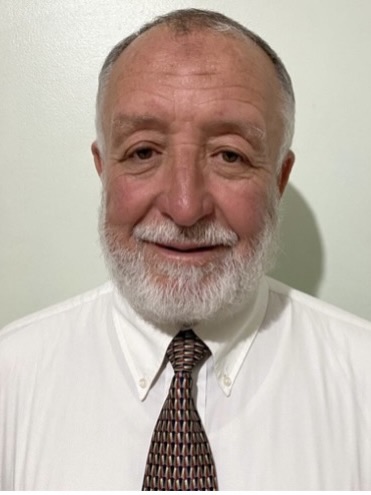
Professor Abdelfatah Charef
Title : New Simulations Perspectives of Variable Order Fractional Integrator Im(t), Differentiator Dm(t) and PIλ(t)Dμ(t) Controller
Session : To be scheduled
Université des Frères Mentouri – Constantine 1, Algeria
Bio : Abdelfatah Charef has received the Diplôme des Etudes Supérieures (DES) from the University of Constantine, Algeria, in 1984, the Master and Ph.D Degrees in Electrical Engineering from Drexel University, Philadelphia, Pennsylvania, USA, in 1987 and 1991, respectively. In September 1991, he has joined the Department of Electronics of the University of Constantine, Algeria, where he is currently Professor and member of the Signal Processing Laboratory. His current research interests are in the areas Fractional Order Operators and Systems, Fractional Order Control, Fractional Order Signal Processing and Applications of Fractional Operators and Systems in Biomedical Signal Processing.
Abstract : In the literature, most of the variable order fractional operator approximation models are impractical in on-line mode because it is necessary to recalculate all the involved models parameters with respect to variations of the time varying fractional. Therefore, there is a need for models that will reproduce their required characteristics with sufficient precision and accuracy and can easily operate in on-line mode without large memory for samples storage and without lot of computations.
This work presents, in a complete different way than the ones given in the literature, an original analog realizations and the numerical evaluations of the variable order fractional integrator Im(t){●}, the variable order fractional differentiator Dm(t){●}, and the variable order fractional PIλ(t)Dμ(t){●} controller using dynamical models derived from an adjustable order fractional integrator model based on Charef’s approximation using the first definition of the variable order fractional operators of Lorenzo and Hartley.
The numerical evaluations of the variable order fractional operators and controller of a given input are just the time responses of their respective proposed analog dynamical models. Illustrative examples are presented to confirm the usefulness and the efficiency of the proposed variable or-der fractional operators and controller analog realizations and numerical evaluations scheme. The obtained results are also compared to some works in the literature to show its accuracy.
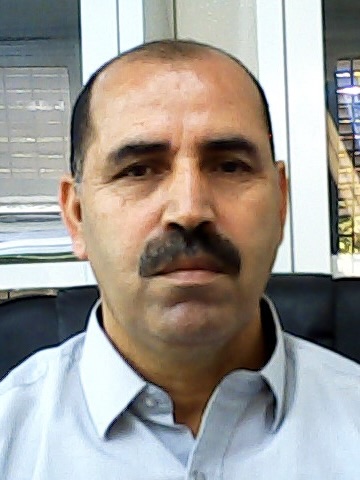
Professor Mouffak Benchohra
Title : Degree of Nondensifiability and Applications
Session : To be scheduled
Djillali Liabes University, Sidi Bel Abbes, Algeria
Bio : Dr. Mouffak Benchohra (born 1964, Algeria) is a Full Professor at the department of mathematics of Djillali Liabes university of Sidi Bel Abbes since October 1994. Benchohra received the master’s degree in nonlinear analysis from Tlemcen university, Algeria 1994 and Ph.D. degree in mathematics from Djillali Liabes university, Sidi Bel Abbes, Algeria 1999. His research fields include fractional differential equations, evolution equations and inclusions, control theory and applications, etc. Benchohra has published more than 500 papers, and 11 monographs. He is a Highly Cited Researcher in Mathematics from Thompson Reuters (2014) and Clarivate Analytics (2017 and 2018), and word’s top 2% researcher from Stanford university (2020, 2021, 2022, 2023, 2024). Benchohra has also occupied the position of head of department of mathematics at Djillali Liabes University, Sidi Bel Abbes. He is in the Editorial Board of 12 international journals.
Abstract : In this talk we introduce the notion of degree of nondensifiability and its relationship with the measure of noncompactness. Some applications to the fixed point theory and the study of initial and boundary value problems for fractional differential equations are presented.
- A. Bensalem, A. Salim, M. Benchohra, E. Karapinar, Fixed Point Theorems for Multi-valued Operators via the Degree of Nondensifiability and their Application to Integrodifferential Inclusions (Submitted).
- A. Bensalem, I. Meradjah, A. Salim, M. Benchohra, and J. Nieto, Fixed Point Theorems Based on the Degree of Nondensifiability in $b$-Norm Spaces and Applications to Differential Problems, Fixed Point Theory.
- K.E. Bensatal, A. Salim, M. Benchohra, Impulsive Integro-Differential Equations via Densifiability Techniques (Submitted)
- N. Bettayed, A. Salim, J. E. Lazreg, M. Benchohra, On Tempered $\psi$-Caputo Fractional Differential Boundary value Problem via Densifiability Techniques, (Submitted).
- C. Derbazi, Z. Baitiche, M. Benchohra, Y. Zhou, Boundary value problem for psi-Caputo fractional differential equations in Banach spaces via densifiability techniques, Mathematics, (2022), 10, 153.
- G. Garcia and G. Mora, The degree of convex nondensifiability in Banach spaces, J. Convex Anal. Vol. 22 No. 3 (2015), 871-888.
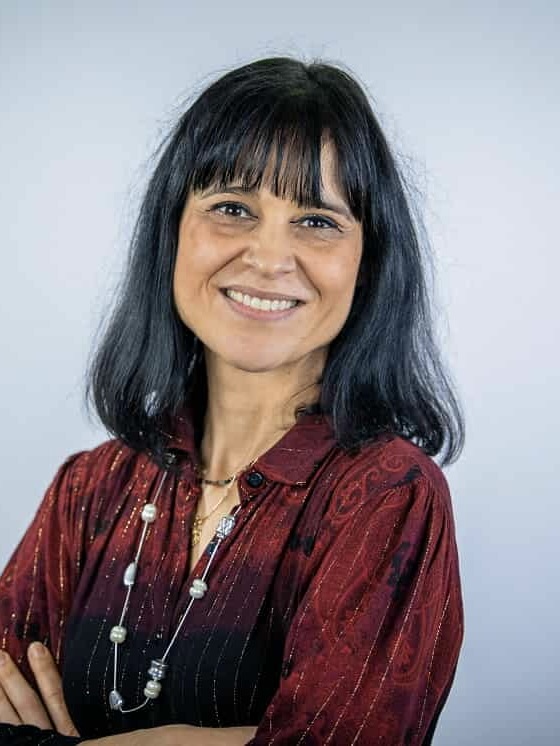
Professor Carla Pinto
Title : Searching for Fractional Behavior in Epidemic Modeling: ‘Where’s Waldo?’
Session : To be scheduled
School of Engineering, Polytechnic of Porto, Portugal
Bio : Dr. Carla M. A. Pinto is a Coordinating (Associate) Professor at the School of Engineering, Polytechnic of Porto (P.PORTO), Portugal. She received her Ph.D. in Mathematics in January 2004. Her principal field of research is Mathematical Epidemiology, with broader interests in mathematical modeling and its applications to public health policy. Dr. Pinto has an extensive background in Nonlinear Dynamics and Bifurcation Theory. Her previous research encompasses the study of Central Pattern Generators for animal and robotic locomotion, coupled cell networks, and neuron-like systems, including the Hodgkin–Huxley, FitzHugh–Nagumo, and Morris–Lecar models. She currently serves as Editor of Chaos, Solitons and Fractals and Chaos X, and as Associate Editor for Computational and Applied Mathematics (Springer) and the International Journal of Dynamics and Control (Springer). In addition, she is a member of the editorial boards of several international journals, including Mathematical Methods in the Applied Sciences and the International Journal of Advanced Robotic Systems. She has also chaired and organized numerous international conferences in Applied Mathematics. Since 2017, Dr. Pinto has broadened her research to include Mathematics Education, with active participation in several Erasmus+ projects. She has served as Coordinator of the MATH-DIGGER and DrIVE-MATH projects and as Local Coordinator for multiple other Erasmus+ initiatives at P.PORTO.
Abstract : The Caputo fractional derivative has been extensively studied, with theoretical results and selected applications supporting its use. This talk raises foundational questions: Do Caputo fractional differential equations provide meaningful models? What memory effects are represented? How should these be interpreted in physical or biological contexts?
Within epidemiological and compartmental frameworks, the Riemann–Liouville derivative introduces non-Markovian features, linking past residence time in a compartment to current transition probabilities. Such mechanisms align with social or biological processes where long-term behavior reduces the likelihood of change, as in smoking cessation, addictions, or chronic diseases.
They also appear in scenarios where hazard rates decrease with time, such as survival after high-risk surgery. However, difficulties arise: not all epidemics exhibit memory; for instance, flu or COVID-19 recovery rates increase over time, contrary to a decaying hazard function. Moreover, initialization poses challenges: omitting pre-observation history can artificially inflate hazard rates at the model’s start. Example analyses suggest that integer-order models with time-varying parameters can capture decreasing hazards, potentially limiting the necessity of fractional terms. While fractional formulations may slightly improve data fitting, the gain is often marginal compared with the added complexity. Thus, the justification for employing Caputo-type fractional models in epidemiology remains an open and nuanced question.
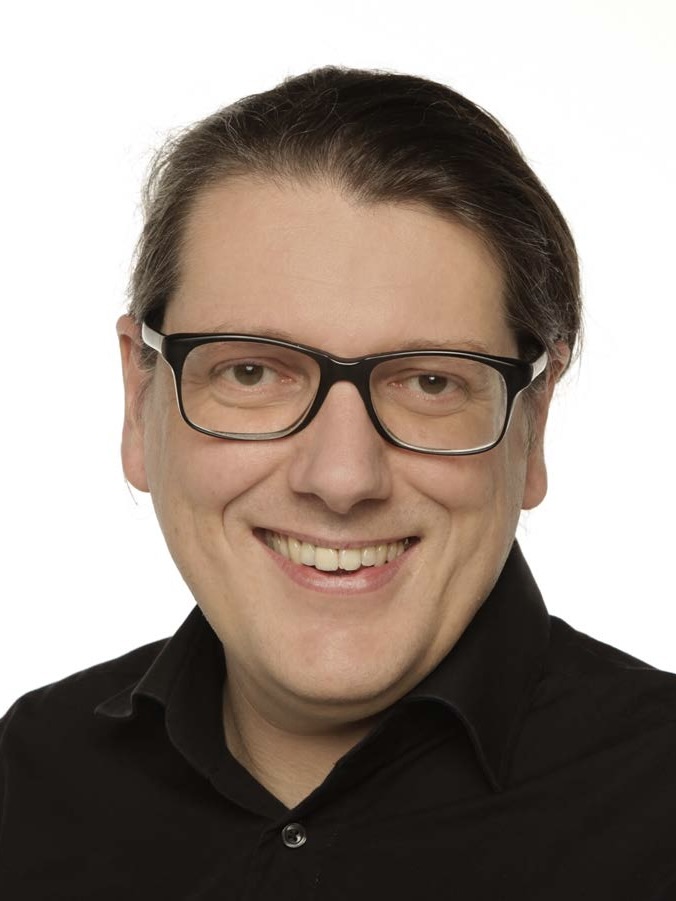
Professor Horst Schulte
Title : Decentralized and Event-based Control of Distribution Grids by DVPP
Session : To be scheduled
University of Applied Sciences Berlin (HTW), Germany
Bio : HORST SCHULTE (Member, IEEE) received the Diploma degree in electrical engineering from TU Berlin, the master’s degree in electrical engineering, focusing on automatic control and electrical power systems, and the Ph.D. degree in mechanical engineering from the University of Kassel, Germany. In 2005, he joined the Bosch Group, where he worked on research and development projects in modeling, optimization, and advanced control of actuators, power systems, and drive trains. Since November 2009, he has been a Full Professor at the University of Applied Sciences-HTW Berlin. His research interests include controller and observer design, active fault-tolerant control (FTC) system design with applications in wind energy systems and other renewab
Abstract : The keynote talk refers to advanced control strategies for managing distributed energy resources (DERs)—such as solar, wind, storage, and controllable loads—by aggregating them into virtual units (virtual power plants) that offer coordinated ancillary services to the distribution grid ¡and into the higher-level transmission grid. The main objective is to achieve grid resilience, flexibility, and efficient market participation via scalable, modular, and adaptive model-reference local power plant controller that operate with minimal centralized intervention and reduced communication overhead.
This is achieved through the Dynamic Virtual Power Plant (DVPP) concept, a paradigm that has attracted considerable research attention in recent years [1]. A DVPP dynamically aggregates heterogeneous DERs (e.g. wind power plants [2], solar photovoltaic power plants [3], storage, controllable loads) and coordinates their operation to provide grid-forming and ancillary services—such as frequency containment reserve, fast frequency control, and voltage support with the focus on short time scales (5 ms to 30 s).
The essential control-theoretic methods for decomposing a desired dynamic relationship between the measured frequency and voltage at selected network nodes and the distributed input power are presented. Both frequency-domain techniques for small-signal analysis around fixed operating points and time-domain formulations that capture the nonlinear local dynamics of generation units [4], as well as event-based global adaptation mechanisms [5], are employed.
The presentation includes simulation and experimental results and discusses how integrating fractional differentiation into both system modelling and controller design can substantially enhance the dynamic performance and robustness of local controllers.
[1] Marinescu, Bogdan., Gomis-Bellmunt, Oriol., DÅNorfler, Florian., Schulte, Horst and Sigrist, Lukas: Dynamic Virtual Power Plant: A New Concept for Grid Integration of Renewable Energy Sources, IEEE Access 2022
[2] Brunner, Johannes; Schulte, Horst: Takagi-Sugeno based Model Reference Control for Wind Turbine Systems in Frequency Containment Scenarios. In: at – Automatisierungstechnik 73, 10, 2025
[3] Schulte, Horst: Takagi-Sugeno Model Reference Control of Photovoltaic Power Plants to Provide Instantaneous Reserve. In: Proceedings of IEEE International Conference on Fuzzy Systems 2025 (FUZZ-IEEE). Reims, France: IEEE Xplore 2025
[4] Schulte, Horst; Resener, Mariana: Integration of Active Power-controlled Photovoltaic Energy Sources in Distribution Grids by Dynamic Virtual Power Plants. In: Proc. of 24th International Wind & Solar Integration Workshop (WIW2025). Berlin: 2025
[5] Schulte, Horst: Adaptive Model Reference Control for Multivariable Takagi- Sugeno Fuzzy Systems, In: Proceedings 34. Workshop Computational Intelligence. Karlsruhe, Germany: KIT Scientific Publishing 2025
Tutorials
Tutorial 1: Applied Fractional Calculus in Big Data and Machine Learning (AFC4BD+ML) (II)
Session : to be scheduled
Organizers :
Prof. YangQuan Chen, MESA (Mechatronics, Embedded Systems and Automation Lab, University of California, Merced, CA 95343, USA, Email:yqchen@ieee.org
Prof. Yuquan Chen, College of Artificial Intelligence and Automation, Hohai University, Nanjing, China (Email: cyq@mail.ustc.edu.cn)
Abstract: Applied Fractional Calculus in Big Data and Machine Learning (AFC4BD+ML) (I) was offered at 12th IFAC International Conference on Fractional Differentiation and its Applications (ICFDA2024) with around 20 participants in person in Bordeaux France. It was well received.
There is an increasing interest in this topic, so we plan to do it again with updated research progresses (see Sec. 2 below) Fractional order calculus is about differentiation and integration of non-integer orders. Fractional calculus based fractional order thinking (FOT) has been shown to help us to better understand complex systems, better process complex signals, better control complex systems,
better perform optimizations, and even better enable creativity. In this tutorial, we will briefly talk on basics of fractional calculus, fractional order thinking, and its rich stochastic models. Then we will justify why fractional calculus is needed in machine learning when we ask “what
is the more optimal way to optimize?”. We will also ask why fractional calculus is needed in data when we ask “how to quantify variability and the complexity of the systems that generate the big data?” We will share rich future research opportunities and a new forum to publish the
related results.
Tutorial 2: Modeling and System Identification with the CRONE toolbox
Session : to be scheduled
Organizers :
Prof. Stéphane VICTOR IMS – UMR 5218 CNRS Univ. Bordeaux stephane.victor@ims-bordeaux.fr
Abstract: Fractional (or non-integer) differentiation has played an important role in various fields notably in signal and image processing and control theory. In these last fields, important considerations such as modeling, system identification and observability are now linked to long-range dependence phenomena. It is expected that such an open invited track attracts new researchers and developers that use fractional calculus in the areas of mathematics, physics, engineering and particularly in automatic control.
The latest developments for continuous-time modeling and system identification with fractional order models are proposed in the newest CRONE toolbox (version 2.0). Fully compatible with the latest Matlab® versions (since 2020a), it includes time-domain identification algorithms for estimating continuous-time models. Thanks to this new programming, the options arguments of the proposed functions have been simplified and updated. In order to help a new user, a tutorial has been completely revised as the CRONE demos command which allows handling the new options.
A Guided User Interface (GUI) is now available, as the CroneIdentification application so that a user, familiar with the Matlab SystemIdentification GUI, can easily handle the system identification methods for preprocessing data, defining a model structure and estimating as well the coefficients as the differentiation orders.
Instructions for speakers
Lorem ipsum dolor sit amet, consectetur adipiscing elit. Fusce efficitur blandit vehicula. Duis tristique nisi nulla, in luctus diam luctus at. Fusce ac sem ultrices, tincidunt ex quis, efficitur tellus. Suspendisse auctor orci et iaculis rutrum. Curabitur auctor libero vel eleifend pulvinar. Interdum et malesuada fames ac ante ipsum primis in faucibus. Maecenas sollicitudin massa neque, eu sollicitudin odio euismod eu.
Cras libero ipsum, facilisis sit amet pulvinar nec, ultrices non mi. Vivamus lacus lectus, convallis nec vulputate eget, gravida vel dui. Ut viverra dui sed fringilla commodo. Duis placerat lobortis turpis, nec facilisis leo molestie sed. Morbi venenatis sollicitudin velit. Etiam a risus ante. Nam sagittis tincidunt mi quis pulvinar. Nam nec vehicula dui. Praesent elit orci, imperdiet at lacus at, maximus volutpat est. Vestibulum vitae sagittis elit.
Social Program
Title : …
Session : Date & heure
Resume : Lorem ipsum dolor sit amet, consectetur adipiscing elit. Fusce efficitur blandit vehicula. Duis tristique nisi nulla, in luctus diam luctus at. Fusce ac sem ultrices, tincidunt ex quis, efficitur tellus. Suspendisse auctor orci et iaculis rutrum. Curabitur auctor libero vel eleifend pulvinar. Interdum et malesuada fames ac ante ipsum primis in faucibus. Maecenas sollicitudin massa neque, eu sollicitudin odio euismod eu.
